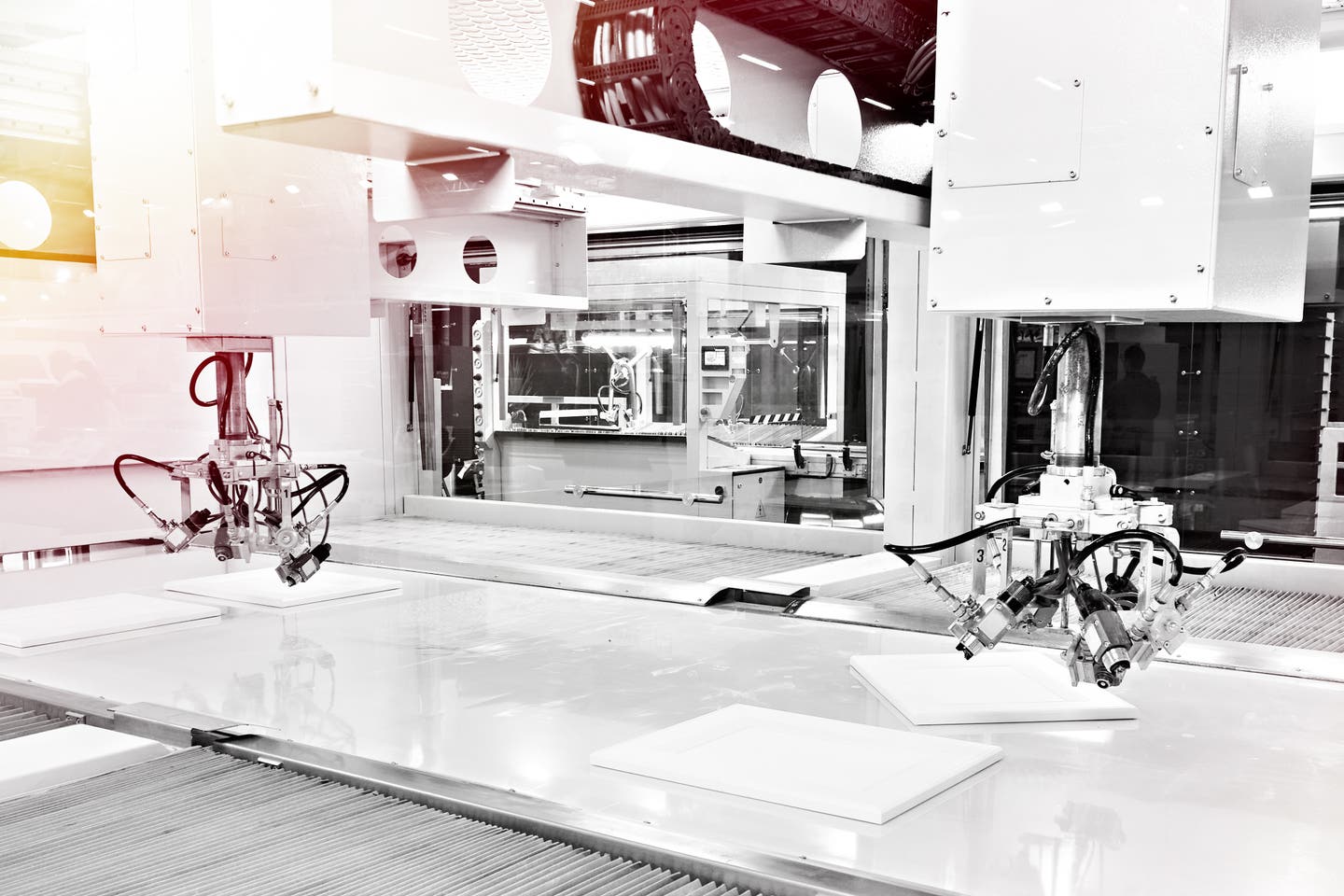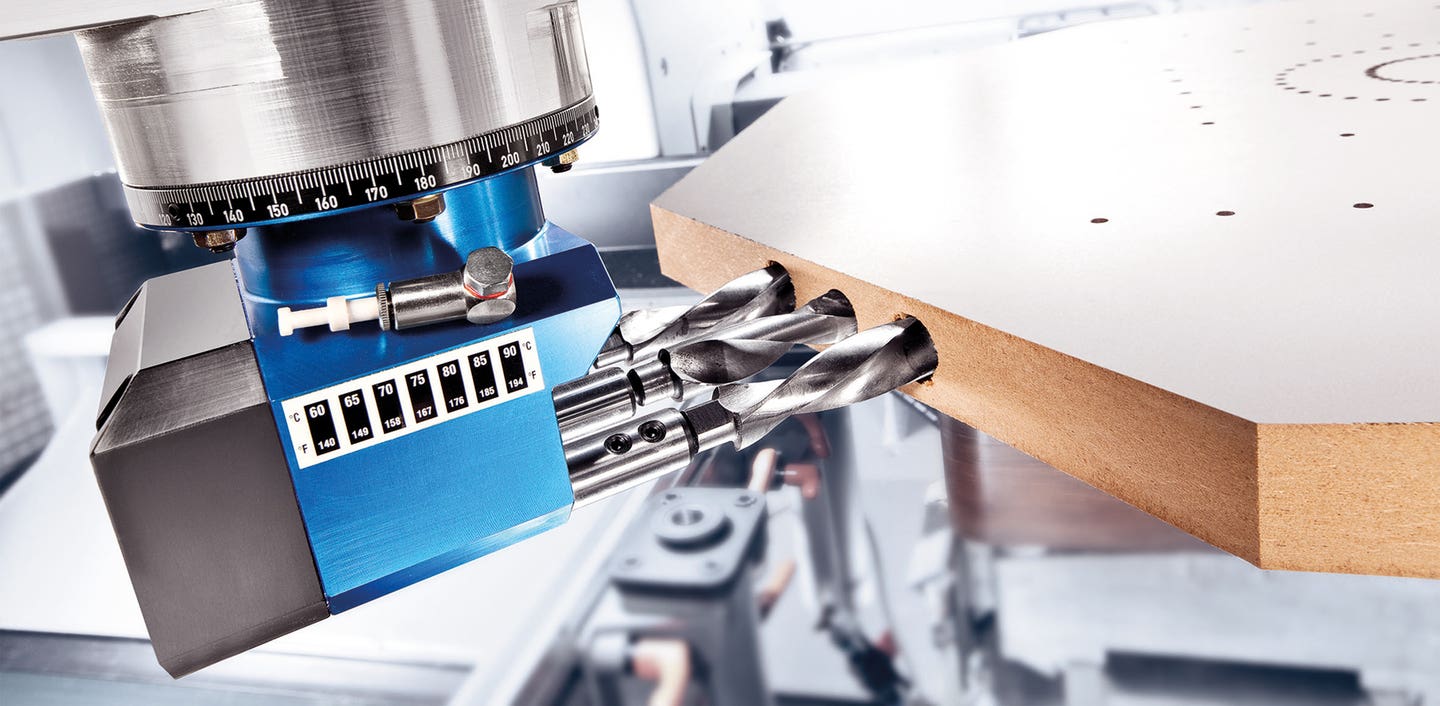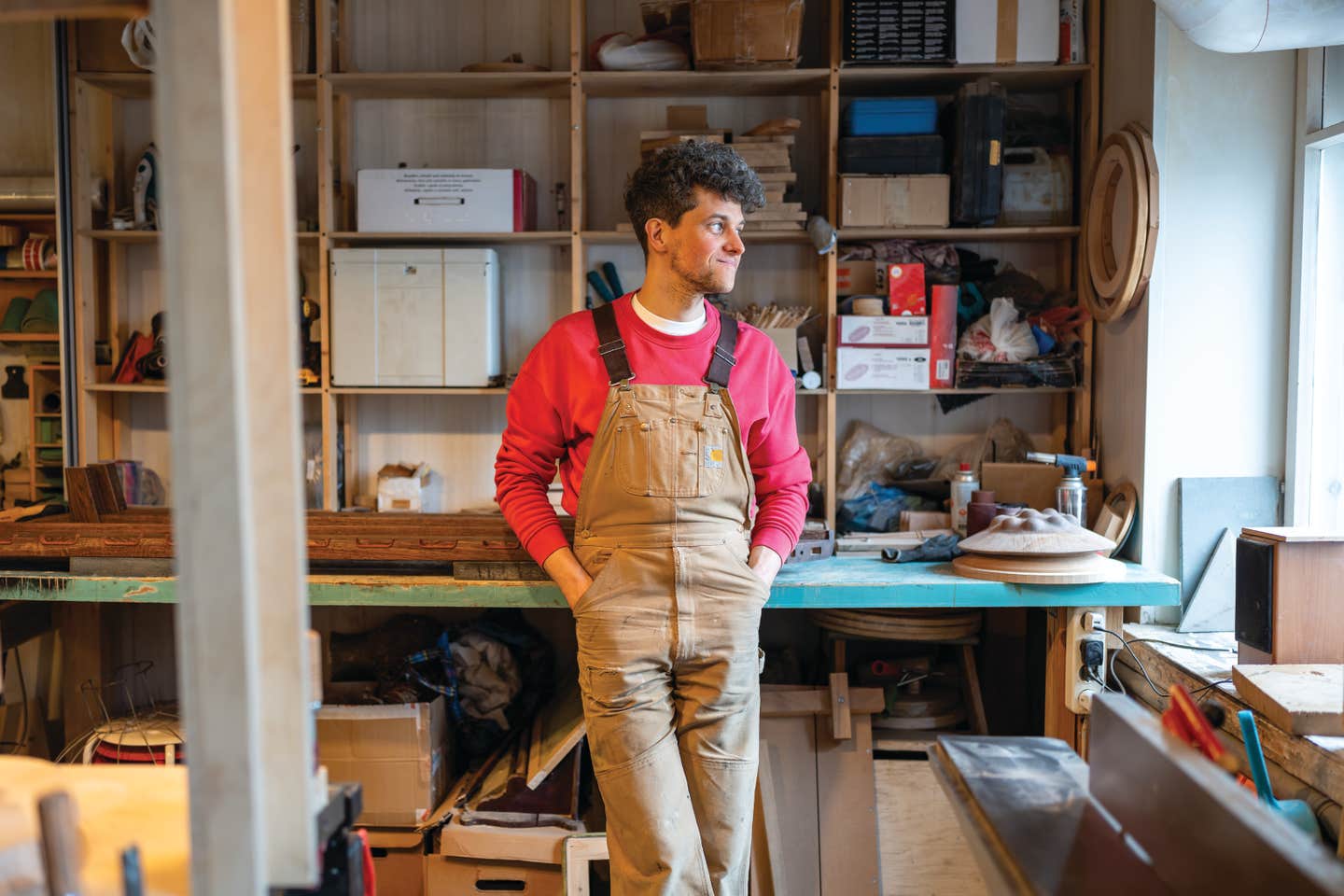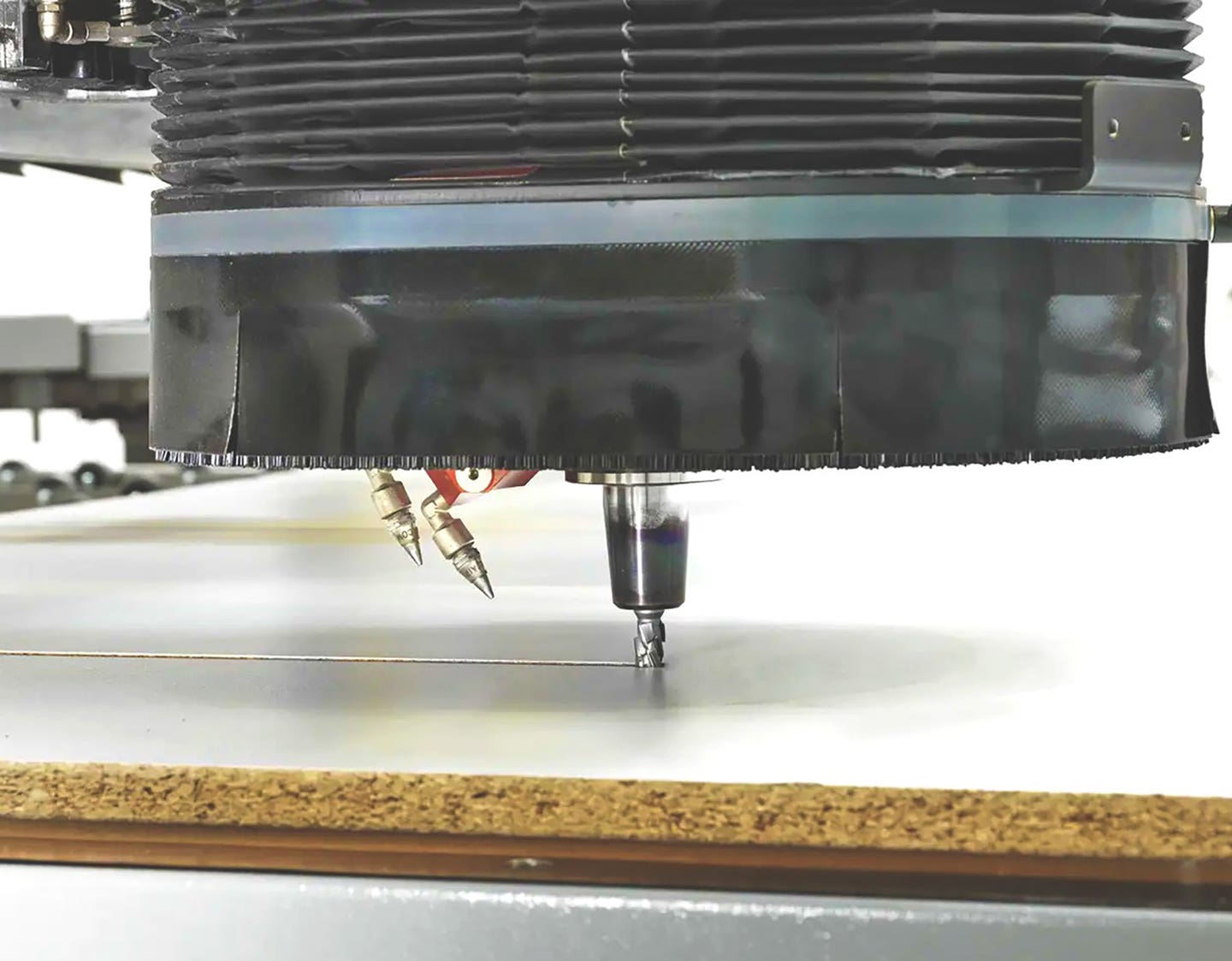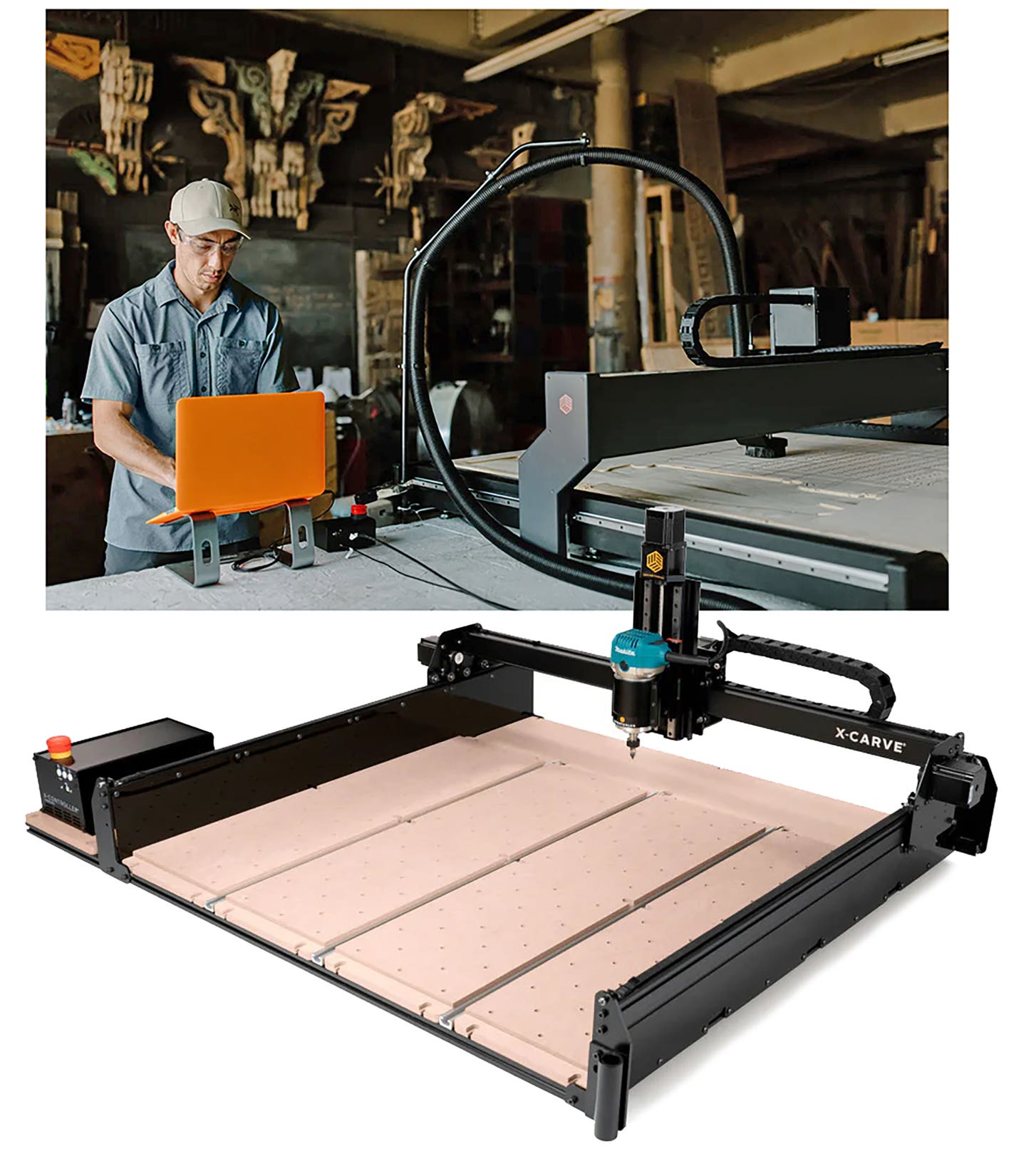All hands on deck
As the company name implies, Hands-On Woodworking Inc. prides itself on working directly with the client. Located in Cornelius, N.C., just north of Charlotte, the custom cabinetry shop provides a…
As the company name implies, Hands-On Woodworking Inc. prides itself on working directly with the client. Located in Cornelius, N.C., just north of Charlotte, the custom cabinetry shop provides a wide range of products and services to many residential and commercial clients located within an hour’s drive, and also some from across the country.
Owner Mark Aspland, who founded the business in 1988, has grown the company from a backyard operation to a 24,000-sq.-ft. facility featuring state-of the art machinery. His 15 employees include skilled craftsmen, project managers and designers.
Until recently, the company always emphasized cabinetry outside of the kitchen. But with the market for new home construction dwindling, Aspland is focusing on kitchen remodeling.
Residential projects, which make up half of the business, include custom kitchens and baths, closet systems, cabinets, home offices, entertainment centers, bookshelves, built-in pantries and other storage solutions. Aspland is currently working on his remodeling business plan to increase profits and update his shop, which he says will assure a vast array of offerings will be available to clients in future years.
“The biggest challenge for us right now is generating enough sales volume and getting the profit margin I need to keep my shop infrastructure up to date. I’ve got a 12-year-old CNC router that I want to replace, but this recession has lasted so much longer than anyone thought it would,” says Aspland.
Ambitious businessman
Aspland got his motivation from his father, who worked as an insurance executive. Born in Macon, Ga., Aspland moved to Philadelphia at a young age. His high school featured an extensive amount of industrial woodworking tools that enabled him to build a canoe and other projects. He was hooked, and built furniture on the side. That interest brought him to North Carolina State University in Raleigh, where he finished a degree in forestry management. He started working in the retail building supply industry and eventually wound up with Weyerhaeuser Company.
“I decided I was going to start a business, so I started looking into doing something a little more related to what I was doing as a hobby at the time, which was woodworking. In 1988, there were not too many 32mm shops around, so I decided to start that kind of a shop.”
He began in a shed in his backyard and was soon renting his neighbor’s shop and hiring his first employee. He then leased a 5,000-sq.-ft. facility before moving to his current location in 2001.
Aspland’s original business concept was to provide storage solutions. “In the beginning, I really stressed closets because I was getting familiar with the 32mm system and wanted to get used to an easy-to-put-together project and get used to the machinery.”
Closet systems made up 80 percent of the business for the first three years, and now make up only 20 percent, says Aspland.
Until about five years ago, all the work was in the residential sector. Aspland initially established his clientele by soliciting small retail shops and contacting architects, designers and builders to see if they had any work for him.
The good old days
By the mid-1990s, the economy was thriving and the shop had tapped the high-end residential and commercial markets.
“When I first went into business, there were only a few homes in the Charlotte market and that just exploded through the mid-1990s to 2005. We started doing a lot of high-end work.
“I hired a closet designer from California. She found me and we started doing a lot of high-end closets in $1-million-plus homes. That became a big part of our business and we branched off from there. She was doing that while I was doing the commercial work.”
The workforce grew to 32 employees during the boom. “We’ve seen our average invoice plummet from whole home packages selling for $50,000 to $80,000, down to single orders for a small built-in or closet. The average invoice has really gone down since 2007, and I’m definitely seeing more tire kickers right now than ever before,” says Aspland, adding that he is currently busy with commercial contracts and starting to see some activity on the residential side.
Even though he yearns for the four-month backlog he once had, Aspland is very cautious about taking on work too quickly these days. That’s because he often observes commercial retailers approaching home improvement service providers as if they’re desperate for work because of the economic downturn. While many contractors sell themselves short, Aspland stands his ground and refuses to underbid on a project that might cause him to lose money.
“I just lost one of my biggest contractors because they asked me to do work below cost. Doing this doesn’t help anyone from a quality standpoint. When a customer beats a contractor down, they’re not getting more for their money. That contractor’s going to figure out a way to get a profit out of the job. There are a few out there that won’t do that, and I’m one of them. If I commit to something, I’m going to build it, but I’m not going to lose money by taking a job below cost. I’ve walked away from a ton of business opportunities because of this.”
On the residential end, Aspland says homeowners understand they’re going to have to pay to get the results they want.
“They know that if they don’t, they’re not going to get the right service, quality and all of the things they expect,” he says, adding his current backlog is six to eight weeks.
Diverse offerings
All project designs are made by a network of design specialists who are both employees and subcontractors with CAD programs. Aspland says his use of these specialized professionals gives the company an edge against the competition.
“Most cabinetmakers can give you a good-looking cabinet. But I think what really sets us apart from other cabinetmakers is that we make sure it adjusts properly in your home and is practical for not only you, but for future owners. That’s our strong point.”
On the residential end, Aspland says clients are gravitating away from the traditional style for their home casework packages.
“The styles they want are not exactly contemporary, they’re more transitional. Over the last two years, people have been getting a little more innovative in this area. You see that in the more urban areas, but generally we’re a couple of years behind.”
Clients are moving toward darker color preferences in both wood and finish selection. Maple, cherry and walnut are generally the leading wood preferences, but lately Aspland has been trying to push more offbeat local domestic species such as sycamore and ash.
“The reason I’m doing that is because you see all of these imported woods like Brazilian walnut being used and I really think we have beautiful domestic hardwoods here, so I’m trying to stress those.”
Commercial projects include auto dealerships, medical and dental office reception desks and break rooms. Random custom millwork projects are also done for jobs requiring a CNC router.
This range of offerings is accomplished by the shop’s major machinery, such as the Komo 508 Innova CNC router; Altendorf F45 sliding table saw; and Holz-Her 1416 Sprint edgebander. Primary software programs used for drawing and machining include AutoCAD, CADCode, and 20-20 Design. Finishing is performed in-house, primarily with M.L. Campbell products, while subcontractors are hired for installs.
Aspland emphasizes that the quality of his personnel has contributed to the shop’s success.
“They all have a very high skill level. It’s difficult to keep good people like that, but fortunately for me, the turnover rate is low and most employees have been here at least 10 years,” he says.
Employees are offered a retirement package, paid vacations and holidays, and health insurance.
Future growth
“My plan is to get into the whole house market on the retail end, working with architects that are building smaller, high-quality homes. I will probably get up to 22 employees, but I’m not interested in growing much more than that.”
“Cornelius is a great area; there’s a lot of great potential. The big problem I see is the same problem you see in most areas right now. You have a state and local government that have spent themselves into a very tight corner and you’re coming after businesses with taxes and regulations.”
Aspland’s interests outside of work include spending time with family, sailing competitively on nearby Lake Norman and playing the guitar. He adds that he’s extremely content with an established career in woodworking.
“Before I went into woodworking, I was a lumber salesman. There’s something about producing a tangible product. You don’t get that feeling from sitting in front of a computer or working at a bank.”
Contact: Hands-On Woodworking Inc., P.O. Box 1212, Cornelius, N.C., 28031. Tel: 704-892-7720. www.handsonww.com
This article originally appeared in the July 2011 issue.

